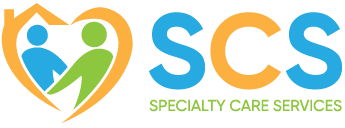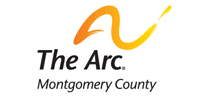Kidney Failure & Chronic Kidney Disease (CKD) Home Care
Maryland, Washington, D.C., and Northern Virginia
24/7 Nurse Availability
Free In-Home Assessments
Over 25 Years of Experience
Hours:
Request Call Back
Hero Request Form
Thank you for contacting us.
We will get back to you as soon as possible.
Please try again later.
In-Home Nursing & Care for Kidney Failure and CKD Clients
Those with kidney failure or severe kidney disease often need regular care and support to stay safe and healthy! Our in-home nursing and caregiving team provides essential medication management, fall-risk reduction, dialysis appointment escorts, and more so that you or your loved one feels comfortable and cared for at home.
If you or someone you love is living with kidney failure, severe chronic kidney disease, or requires regular dialysis, taking care of your health can feel like an exhausting full-time job. It can involve daily medication management, diet & meal planning, blood pressure checks, dialysis appointments, and watching for red flag signs. But kidney care doesn’t have to be so stressful.
Our in-home nursing and caregiving team brings experienced kidney nursing & support to your home, so you can live more comfortably and safely between clinic visits and dialysis sessions.
Note: We do not perform dialysis in the home. We coordinate with your dialysis center and nephrology team and handle the rest of your CKD/kidney failure support needs in your home.
Who We Serve
Many of our kidney failure & CKD clients are:
- People with kidney failure (diagnosed as G5/ESKD) who are on dialysis or preparing for dialysis.
- People with severe CKD (usually diagnosed as G3b–G5) who aren’t yet on dialysis but need care and support at home.
- Family members and care partners seeking a kidney disease caregiver at home, anywhere from a few hours a week to 24/7 private duty support.
- Seniors recovering after a hospitalization who need post-hospital kidney support.
- Individuals who also struggle with:
- Feeling unsafe or unsure about managing their own home care
- Limited mobility and frailty
- Cognitive or physical limitations
- Complex care needs (catheter, fistula/graft, wounds & injuries)
- Fear of self-dialysis
- Finding reliable and personalized caregivers
In-home kidney care is common: About 15% of people with kidney failure receive in-home care specifically for their kidney condition, and an even larger share relies on home care to manage additional health issues. Over the past decade, the number of kidney failure clients using in-home care has nearly doubled. [1]
How We Provide Care
We’re a home care agency focused on providing in-home nursing and personal care - built to complement (not replace) your dialysis and clinic care.
In-Home Nursing & Medical Care
- Medication management, reminders, & administration for CKD
- Blood pressure, weight, and fluid monitoring at home. [2]
- Renal-healthy diet & fluid-limit coaching. [3]
- Anemia/ESA coordination per nephrology orders. [4]
- Access-site skin checks & infection-prevention education. [5]
- Edema & severe cramp symptom tracking & escalation.
- Fall-risk & safety assessments & support.
- Dialysis treatment support: providing transport/escort, pre-/post-treatment vitals, symptom notes sent to your center, and regular monitoring and post-treatment check-ins. [6]
Personal care and caregiver support
- Regularly scheduled home health aides are trained on kidney-specific care
- Assistance with bathing, grooming, and dressing
- Meal preparation (renal-friendly foods)
- Light housekeeping
- Medication reminders
- Help with toileting and incontinence care
- Support with mobility and transfers
Respite & Short-Term Care
- Short-term relief for family caregivers
- Care provided in the home so loved ones can rest, travel, or attend to other responsibilities
- Flexible scheduling to meet urgent or planned needs
24/7 Care
- Around-the-clock home support for individuals with high or complex care needs
- Overnight monitoring to ensure safety, comfort, and prompt response to needs
- Continuous personal care, companion care, and nursing oversight as required
What Areas We Serve - And Why
We provide care to Montgomery County, MD, Prince George’s County, MD, Howard County, MD, Frederick County, MD, Washington, DC, Fairfax County, VA, and Arlington County, VA because the local burden of CKD and kidney failure is substantial, and fast-growing older populations mean more people will need our help at home.
Estimated local statistics around chronic kidney disease and kidney failure:
- Bullet text
- Bullet text
- Bullet text
- Bullet text
- Bullet text
- Bullet text
- Bullet text
- Bullet text
- Bullet text
- Bullet text
| County / Jurisdiction | Estimated residents with chronic kidney disease (CKD) | Estimated residents with kidney failure (ESKD) |
|---|---|---|
| Montgomery County, MD | 148,186 | 2,117 |
| Prince George’s County, MD | 132,640 | 1,895 |
| Howard County, MD | 47,040 | 672 |
| Frederick County, MD | 41,182 | 588 |
| Washington, DC | 95,056 | 1,358 |
| Fairfax County, VA | 160,535 | 2,293 |
| Arlington County, VA | 32,783 | 468 |
| Total | 657,422 | 9,391 |
Statistics show that more than 650,000 people in our region are estimated to be living with chronic kidney disease (CKD), yet about 90% of those with CKD have not been diagnosed. [17] This means most families don’t realize there’s a serious kidney problem until symptoms or complications become difficult to manage.
Our in-home nursing and care team can provide a nursing assessment that helps you determine if you have CKD or are at risk of developing kidney problems so that you can make informed decisions for your health.
At the same time, nearly 9,400 residents are already living with kidney failure, often requiring close monitoring, daily medications, diet adjustments, and support to stay safe at home. Our team helps those who need it most by providing skilled monitoring, medication management, and everyday care so you and your loved ones don’t have to face these risks alone.
Which Kidney-Specific Professionals and Providers We Collaborate With or Recommend
We work alongside or can provide a referral for:
- Nephrologists and clinic teams
- Dialysis centers
- Vascular access surgeons and interventional radiology
- Renal dietitians
- Primary care & cardiology
- Social workers/care managers
- Palliative/supportive care for symptom relief.
Coverage & Payment for Kidney Care in Maryland, Washington, DC, and Northern Virginia
- Medicaid & HCBS waivers:
- Maryland: Home & Community-Based Services programs (such as Community Options Waiver) support eligible adults with in-home services. [18]
- District of Columbia: Elderly & Persons with Physical Disabilities (EPD) Waiver offers in-home LTSS for those meeting nursing facility level-of-care. [19]
- Virginia: CCC Plus (managed LTSS) covers nursing, personal care, and other supports for eligible members. [20]
- Private pay and long-term care insurance are welcome; we can provide documentation for reimbursement.
How It Works – Step-by-Step
- Free nurse assessment (virtual or in-home)
A registered nurse (RN) learns your goals, meds, dialysis schedule, home setup, diet, and red-flag symptoms. (Same-day starts and 24/7 support available in some ZIP codes.) - We develop your personalized care plan.
We design a Kidney Failure & CKD Home Care Plan around your nephrologist’s orders—medication management, BP/weight/fluid tracking, renal diet coaching, fall-risk & safety, access-site care education, appointment escort, symptom monitoring, and dialysis-day support. - We deliver your care to your home.
We match you with a renal home care nurse, CKD home health aides, and a care coordinator. We contact your nephrologist/dialysis center to align communication pathways. - We work with other professionals and providers.
Visits from nurses and aides (from a few hours a week to 24/7in-home care) with real-time notes to your providers as needed. We help you hire a nurse/caregiver for CKD on the cadence that fits you. - Regular RN check-ins & adjustments
Weekly to monthly nurse reviews to evaluate vitals and symptoms, tune the plan, and handle care coordination with nephrologists & dialysis centers.
Sources
- U.S. Renal Data System (USRDS).
https://usrds-adr.niddk.nih.gov/
Accessed September 2025. - Centers for Disease Control and Prevention (CDC) – High Blood Pressure & CKD.
https://www.cdc.gov/bloodpressure/
Accessed September 2025. - National Kidney Foundation – Nutrition and Chronic Kidney Disease.
https://www.kidney.org/atoz/content/nutritio
Accessed September 2025. - National Institute of Diabetes and Digestive and Kidney Diseases (NIDDK) – Anemia in CKD.
https://www.niddk.nih.gov/health-information/kidney-disease/anemia
Accessed September 2025. - National Kidney Foundation – Preventing Infections in People with Kidney Disease.
https://www.kidney.org/atoz/content/infections
Accessed September 2025. - American Kidney Fund – Dialysis Transportation and Support.
https://www.kidneyfund.org/for-patients-and-families/living-with-kidney-disease/dialysis/transportation
Accessed September 2025. - U.S. Census Bureau – Montgomery County, MD Population Estimates.
https://www.census.gov/quickfacts/fact/table/montgomerycountymaryland
Accessed September 2025. - U.S. Census Bureau – Prince George’s County, MD Population Estimates.
https://www.census.gov/quickfacts/fact/table/princegeorgescountymaryland
Accessed September 2025. - U.S. Census Bureau – Howard County, MD Population Estimates.
https://www.census.gov/quickfacts/fact/table/howardcountymaryland
Accessed September 2025. - Federal Reserve Economic Data (FRED) – Frederick County, MD Population.
https://fred.stlouisfed.org/series/MDFRED5POP
Accessed September 2025. - U.S. Census Bureau – District of Columbia Population Estimates.
https://www.census.gov/quickfacts/fact/table/DC
Accessed September 2025. - Federal Reserve Economic Data (FRED) – Fairfax County, VA Population.
https://fred.stlouisfed.org/series/VAFARR5POP
Accessed September 2025. - U.S. Census Bureau – Arlington County, VA Population Estimates.
https://www.census.gov/quickfacts/fact/table/arlingtoncountyvirginia
Accessed September 2025. - U.S. Renal Data System (USRDS) – 2022 Annual Data Report.
https://usrds-adr.niddk.nih.gov/2022
Accessed September 2025. - Centers for Disease Control and Prevention (CDC) – CKD in the United States, 2023.
https://www.cdc.gov/kidneydisease/publications-resources/ckd-national-facts.html
Accessed September 2025. - National Institute of Diabetes and Digestive and Kidney Diseases (NIDDK) – Kidney Disease Statistics.
https://www.niddk.nih.gov/health-information/health-statistics/kidney-disease
Accessed September 2025. - Centers for Disease Control and Prevention (CDC) – Awareness of CKD.
https://www.cdc.gov/kidneydisease/basics/ckd-national-facts.html
Accessed September 2025. - Maryland Medicaid – Community Options Waiver.
https://mmcp.health.maryland.gov/longtermcare/pages/co-waiver.aspx
Accessed September 2025. - District of Columbia – Elderly and Persons with Physical Disabilities (EPD) Waiver.
https://dchealth.dc.gov/service/epd-waiver
Accessed September 2025. - Virginia Medicaid – CCC Plus Waiver.
https://www.dmas.virginia.gov/for-members/long-term-services-supports/ccc-plus/
Accessed September 2025.
How do I know if my parent with CKD needs a home health aide?
Here’s a checklist. If you’re loved one experiences any of these and providing care to them has become challenging, you may want to look into utilizing a home health aide:
- Parent needs daily medication reminders or help managing multiple prescriptions.
- Struggles to track blood pressure, weight, or fluid intake at home.
- Needs guidance with renal-friendly meals and fluid restrictions.
- Has frequent fatigue, dizziness, or swelling that makes self-care difficult.
- Recently hospitalized or recovering from a procedure related to CKD or dialysis.
- Trouble with walking, balance, or fall risk.
- Difficulty getting in/out of bed, chairs, or using the bathroom.
- Has had a recent fall or close call at home.
- Needs assistance with bathing, dressing, grooming, or toileting.
- Has trouble preparing renal-safe meals or forgets to eat/drink appropriately.
- Requires help with household chores like laundry or cleaning.
- Shows signs of confusion, forgetfulness, or difficulty following care routines.
- Feels overwhelmed, anxious, or unsafe when managing CKD alone.
- Expresses fear of dialysis or self-care responsibilities.
- Family caregivers feel burned out, stressed, or unable to provide full-time support.
- Family cannot be present to monitor symptoms, appointments, or medications consistently.
- Parent requires overnight support or 24/7 monitoring that the family cannot provide.
Are there levels of CKD severity?
Yes. CKD is staged by GFR (G1–G5) and albuminuria (A1–A3), combined with the cause—this is the C-G-A system used worldwide. G5 is kidney failure. We use your stage and albuminuria risk to set monitoring frequency and escalation rules at home.
Do you perform dialysis at home?
No—we provide support around dialysis days (transport/escort, pre/post-treatment monitoring) and non-dialysis CKD care at home.
What’s included in CKD home care?
Medication setup, BP/weight/edema checks, renal diet coaching, symptom journaling and escalation, fall/safety checks, anemia monitoring, and ESA coordination per MD orders.
What documentation is needed to begin in-home care for CKD or kidney failure?
No formal documentation is required – you can simply give us a call to set up a complimentary initial assessment. If you have a referral from a hospital or physician, please provide us with that. If you are utilizing long-term care insurance or Medicaid, we can help you with submitting that documentation.

CP #1 Headline
CP #1 Body
CP #1 CTA Lead-in
Not valid with any other offers or promotions. Restrictions apply.
Must mention this coupon at the time of scheduling.
Reviews



